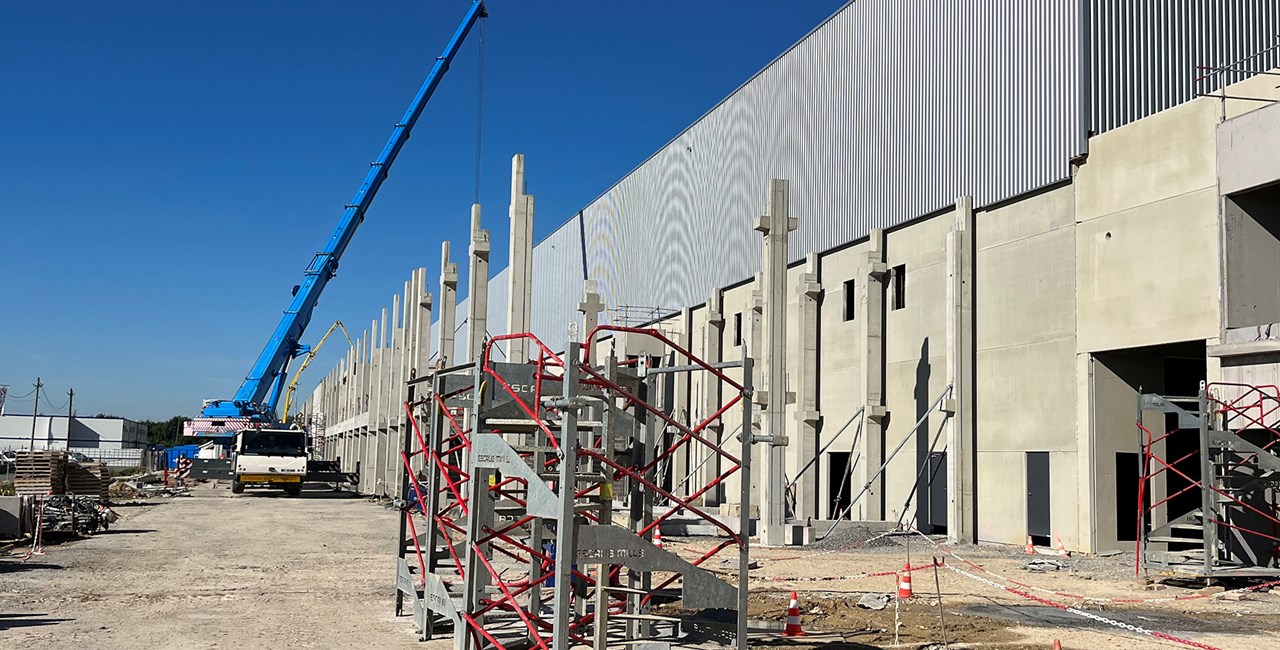
Meeting the EV challenge in Europe
In 2021, AESC and Renault announced a partnership to design and produce EV batteries. This is following the carmaker’s announcement to bring its facilities to northern France (Douai, Maubeuge and Ruitz) in order to produce 400,000 EV’s per year. Once operational, this facility will allow AESC to expand its European manufacturing base, following the development of their Sunderland battery factory for Nissan in the UK. AESC’s Douai plant will, in its first phase, supply batteries for the new all-electric Renault 5, due to launch in 2024 with a capacity of 9GWh. As such, the project has an ambitious timeline to meet this launch.
When fully developed across three future phases, the project will have a capacity in excess of 30 GWh.
Building better battery and battery factory capacity
The new AESC plant will comprise all phases of electrode, cell and battery module production and assembly. The project is significant because of its sheer size and scale. The first phase is being constructed on a 20ha plot, with the possibility of expanding to 60ha as the factory hits full capacity. Phase 1 will see construction of 175,000 m2 in surface providing production, logistics and office areas.
Leveraging our global experience in the sector – and our track record with AESC as a trusted partner – we are providing a range of services, including controls and performance, cost and commercial management, procurement and project management. Applying our in-house local and global cost data allowed us to produce early estimates, benchmarked against similar global facilities. This ensured best value for the client.
Through our local teams and our presence in France, we were able to outline the local market singularities. We were also able to analyse the most adapted delivery methods and contractual frameworks, providing AESC with a strong support in their approach to the local construction market.
Supporting local community and workforce development
The project is estimated to create about 1,200 jobs when operational in 2024 and this will potentially reach 3,000 when the factory is fully developed. A recruitment and training strategy, created between AESC and several regional stakeholders, will support the employment of the local community and the development of technical know-how.
This project will make a significant contribution to decarbonisation in the transport space. It supports the European Union’s target to reduce CO2 emissions in new cars by 55 percent (through banning the use of internal combustion engines in 2040) and a net-zero approach to all ground transports by 2050. AESC battery factory is a landmark project in the emerging ‘battery valley’ that is taking shape in the northern France region, placing France at the forefront of the innovation and supply capacity in the sector across Europe.

